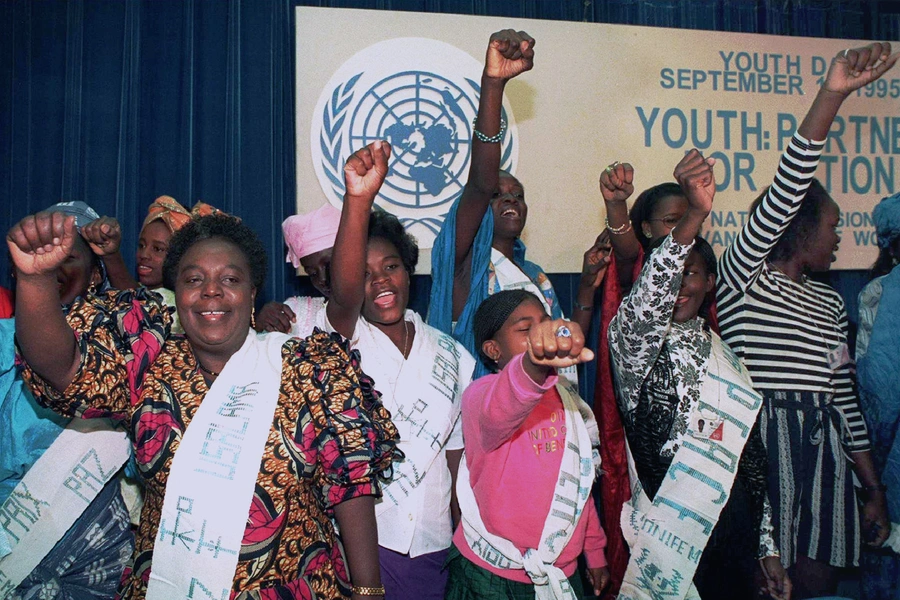Let’s Make Women’s Power Culturally Acceptable

This blog post was authored by Rachel Vogelstein, Douglas Dillon senior fellow and director of the Women and Foreign Policy program at the Council on Foreign Relations, and Jennifer Klein, chief strategy and policy officer at TIME’S UP.
Twenty-five years ago this month, delegates from 189 countries descended on Beijing to participate in the United Nations’ Fourth World Conference on Women. This meeting was notable for many reasons, not least because it was, at the time, the largest gathering of women’s rights advocates in history: In addition to official government delegations, some 30,000 activists from around the world attended the conference. The rallying cry that emanated from Beijing, “Women’s rights are human rights”—famously proclaimed in a speech by the United States’ then-first lady, Hillary Clinton—still reverberates today.
More on:
At the conclusion of the summit, years of activism culminated in a historic inflection point, as governments meeting in Beijing agreed to the most ambitious Platform for Action on women’s rights in history, one that called for the “full and equal participation of women in political, civil, economic, social and cultural life.” Perhaps less well known, but just as important, was the formation of a network of civil society activists relegated to run-down buildings in Huairou, a muddy, far-off suburb of Beijing, by a Chinese government fearful of their power—who shared plans to implement the platform and address the issues that women faced around the globe. From gender-based violence to restrictions on access to health care, and from unequal responsibility for caregiving and household labor to laws preventing ownership of property, access to credit, and fair pay, women found common cause in a universal set of struggles. They left Beijing buoyed by the global recognition that violations of women’s rights and dignity—practices once seen as cultural—contravened fundamental human rights.
Read the full article on Foreign Policy>>
More on:
 Online Store
Online Store